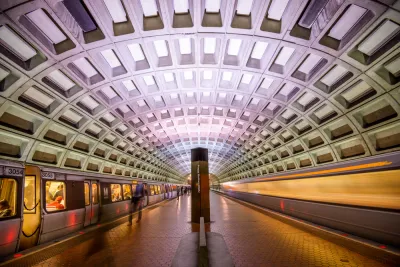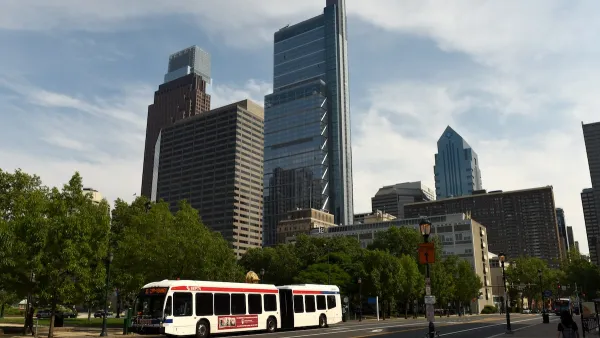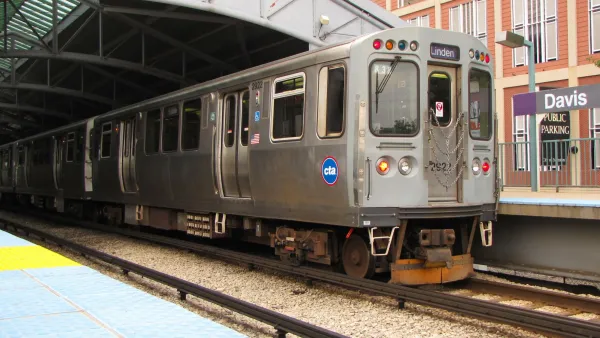Depending on how the issue is phrased, support for public transit can be bipartisan.

I recently saw a conference speech suggesting that geographic polarization was terrible for transit, because as Republicans have become a more rural party, they have become more anti-transit than ever. However, a recent Data for Progress survey suggests that public opinion is a bit more nuanced. Although Republicans are generally not as pro-transit as Democrats, pro-transit propositions often met with significant or even majority support from Republicans.
The good news is that when asked to agree or disagree with the statement "The United States would benefit from better public transit," only 26 percent of suburban Republicans disagreed, along with only 29 percent of rural Republicans. When asked about their own communities, rural and suburban Republicans were almost evenly split—understandably given the extremely low density of most of rural and suburban America.
Since Republicans are often more skeptical of government spending, one might expect a strong partisan split about any poll questions involving the word "funding." Sixty-five percent of Democrats favored more funding for transit, only 4 percent favored less funding, and 21 percent favored keeping funding the same. Republicans overwhelmingly favored the middle position; 48 percent favored keeping funding the same, as opposed to 20 and 19 percent favoring increases and cutbacks, respectively.
But Republicans can also be skeptical of road spending, depending on how a question is asked. Seventy-three percent of them favored fixing old roads before building new ones, and 63 percent favored a ten-year moratorium on new roads (a number roughly comparable to the percentage of Democrats taking these positions).
One bit of bad news for transit advocates is that Republicans and Democrats are more sharply divided when taxes are mentioned. The survey asks whether respondents would be willing to pay higher taxes for transit. Democrats overwhelmingly supported the idea; Republicans were mostly against the tax increase, though 35 percent took the pro-tax, pro-transit position. In addition, Republicans who oppose new roads usually weren’t willing to go further and remove existing freeways. After being informed of the case for removing urban freeways, Republicans opposed conditioning federal transportation funding on freeway removal plans by about a 2-1 margin.
On balance, it seems to me that rank-and-file Republicans are generally not completely anti-transit, and are generally perfectly happy to support existing levels of funding and service—a result that seems consistent with Congressional Republicans' consistent support of status quo-oriented transportation bills. Although Republicans are much more skeptical of major new transit investments, a significant minority of Republicans are persuadable even as to new projects.

National Parks Layoffs Will Cause Communities to Lose Billions
Thousands of essential park workers were laid off this week, just before the busy spring break season.

Retro-silient?: America’s First “Eco-burb,” The Woodlands Turns 50
A master-planned community north of Houston offers lessons on green infrastructure and resilient design, but falls short of its founder’s lofty affordability and walkability goals.

Delivering for America Plan Will Downgrade Mail Service in at Least 49.5 Percent of Zip Codes
Republican and Democrat lawmakers criticize the plan for its disproportionate negative impact on rural communities.

Test News Post 1
This is a summary

Test News Headline 46
Test for the image on the front page.

Balancing Bombs and Butterflies: How the National Guard Protects a Rare Species
The National Guard at Fort Indiantown Gap uses GIS technology and land management strategies to balance military training with conservation efforts, ensuring the survival of the rare eastern regal fritillary butterfly.
Urban Design for Planners 1: Software Tools
This six-course series explores essential urban design concepts using open source software and equips planners with the tools they need to participate fully in the urban design process.
Planning for Universal Design
Learn the tools for implementing Universal Design in planning regulations.
EMC Planning Group, Inc.
Planetizen
Planetizen
Mpact (formerly Rail~Volution)
Great Falls Development Authority, Inc.
HUDs Office of Policy Development and Research
NYU Wagner Graduate School of Public Service






























